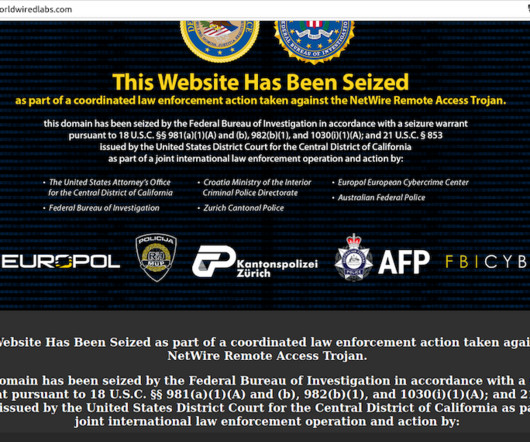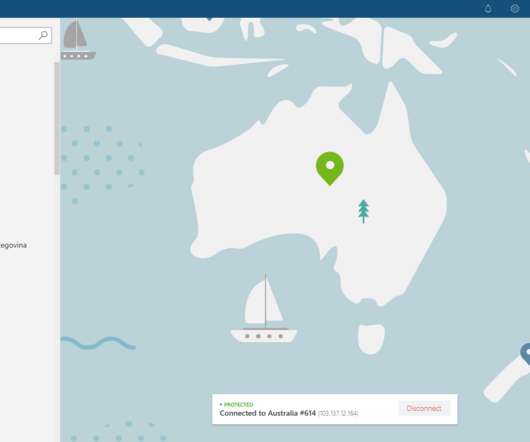Who’s Behind the NetWire Remote Access Trojan?
Krebs on Security
MARCH 9, 2023
A Croatian national has been arrested for allegedly operating NetWire , a Remote Access Trojan (RAT) marketed on cybercrime forums since 2012 as a stealthy way to spy on infected systems and siphon passwords. NetWire has been sold openly on the same website since 2012: worldwiredlabs[.]com. org , also registered in 2012.



















Let's personalize your content